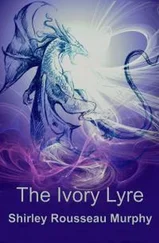Ширли Мерфи - The Dragonbards
Здесь есть возможность читать онлайн «Ширли Мерфи - The Dragonbards» весь текст электронной книги совершенно бесплатно (целиком полную версию без сокращений). В некоторых случаях можно слушать аудио, скачать через торрент в формате fb2 и присутствует краткое содержание. Издательство: Ad Stellae Books, Жанр: Фэнтези, на английском языке. Описание произведения, (предисловие) а так же отзывы посетителей доступны на портале библиотеки ЛибКат.
- Название:The Dragonbards
- Автор:
- Издательство:Ad Stellae Books
- Жанр:
- Год:неизвестен
- ISBN:нет данных
- Рейтинг книги:4 / 5. Голосов: 1
-
Избранное:Добавить в избранное
- Отзывы:
-
Ваша оценка:
- 80
- 1
- 2
- 3
- 4
- 5
The Dragonbards: краткое содержание, описание и аннотация
Предлагаем к чтению аннотацию, описание, краткое содержание или предисловие (зависит от того, что написал сам автор книги «The Dragonbards»). Если вы не нашли необходимую информацию о книге — напишите в комментариях, мы постараемся отыскать её.
The Dragonbards — читать онлайн бесплатно полную книгу (весь текст) целиком
Ниже представлен текст книги, разбитый по страницам. Система сохранения места последней прочитанной страницы, позволяет с удобством читать онлайн бесплатно книгу «The Dragonbards», без необходимости каждый раз заново искать на чём Вы остановились. Поставьте закладку, и сможете в любой момент перейти на страницу, на которой закончили чтение.
Интервал:
Закладка:
The officers dared not speak.
“I will use my powers to help you,” he said with studied softness. “I will see that Tebriel himself leads you to those you are to capture.”
The officers stared.
“Go on! Get to Lashtel! What are you waiting for! Go and ready a ship, to follow the dragons! They will head either for Dacia or for Windth—”
Suddenly the courtyard was gone.
He stood alone in a dark mist.
There was no sound. He shielded himself with power. What trick was this?
A black Door shone before him, cut sharply out of the mist, a heavy Door strapped and hinged with iron. As he looked, it grew taller until it rose as high as his castle towers. When it swung inward, he stood scowling into the deeper darkness beyond. Such a trick could not last long—no one had the power to deceive him for long. He raised his hand to wipe the vision away, but a woman appeared in the doorway, and her presence held him still.
She was tall and tawny haired. Her green eyes shone with an intense, disturbing power. He willed her away from him, yet he was drawn to her. A white dragon slipped out of the blackness to rear and coil around her, spreading its wings above her. It stared down at him with eyes like hers, eyes of green fire. Its tongue came out and curled and licked as if it would like to snatch him up and swallow him.
The woman’s voice was soft. “You are Quazelzeg.” She smiled, but not a soft smile. He was staring at her, deciding which power to use to banish her, when he saw Sharden lying below, as if he stood on a mountain. Sharden— his city, where lay his second castle. He could see his disciples and slaves down there; the woman and dragon were there, as well as here before him. There were other dragons winging above the castle.
What did this mean?
A voice riveted him. Not the woman’s voice but the dragon’s, deep and thunderous:
“I am the dragon, Quazelzeg. I am the one you must seek.” The dragon smiled, bloody mouth gaping, white teeth like blades, flames spurting from deep within. Quazelzeg stared, hating it—and lusting to own it.
“I am the one you must follow,” it said. “If you follow me—and if you can kill me—you will win this world completely.
“But only by killing me. Only me . . .”
The dragon turned. The woman looked at Quazelzeg for a moment, calmly, in full command. Her eyes held a deep challenge that infuriated him. When she turned, she swung onto the dragon’s back; it spun, and they were gone into blackness.
He stood staring after them. Countless Doors began to appear, opening into uncounted worlds. He could see the dragon racing through, so that it seemed to be a thousand dragons. Wherever he looked, Doors shone in a spinning tangle of chambers and caves and infinite space, and always the dragon was racing through as if it challenged him to follow.
He did not want to admit that this was more than trickery. He could turn and go back to his own palace—or he could follow and destroy them. He stood for an instant alone between worlds, lusting with the challenge. Then he brought his powers around him like protecting armor and stepped into the careening blackness.
*
The two white dragons beat across a powerful wind, easing a path for Iceflower, who limped along behind them. It was just dusk. Aven rode before Teb, filled with eager visions of a blue dragonling. Darba rode in front of Kiri, her wonder touching Kiri powerfully: She was free; she was with other bards like herself. She was, ultimately and joyously, with dragons. Kiri hugged the little girl and smiled.
Yet when Kiri looked across at Teb, that hurtful unease crawled in her mind again. She tried to hide her uncertainty. When he touched her thoughts with a powerful sense of needing her, she responded with all her strength. In the thin moonlight, his look was so honest, and so caring, that she reached through space to touch his hand between sweeps of the dragons’ wings.
*
Ahead of them, on Windthorst, Camery and Colewolf’s armies waited in silence atop the mountain ridge above Sivich’s camp. Many of the warriors who waited with them had, a day ago, been slaves of the unliving. Awakened to the visions of dragon song, these men and women and children had armed themselves and made their way south, side by side with the speaking animals.
Owl spies patrolled mountain and valley, winging silently through the night between Camery’s camp and Ebis’s army, waiting on the ridge farther north.
*
Ebis lounged beside his black stallion, letting the animal graze at the sparse grass. He was a big man, broad of shoulder and with a heavy, curling black beard. Not since he had won Ratnisbon back, some years ago, had a battle excited him so. This night’s work must make an end to Sivich—and a beginning to the end of the dark rulers. Certainly the dragonbards had fanned the fires of revolt across the larger continents to a roaring blaze. Many slaves had turned on their masters and killed them, and joined with Camery’s troops.
Thinking of Camery made him smile. He remembered her as a little girl. She had grown up very like her mother—a fighter just like Meriden. A fine figure she made on that black dragon, a daughter Meriden would be proud of. He made a fervent warrior’s prayer for her in this battle; and for Tebriel and his bards to return safely from Aquervell.
*
Quazelzeg followed the woman and dragon through endless Doors, planning to drive them into some dark world where he could destroy them. He could hear the deathly cries of the soulless multitudes, very near. Soon he was moving through a mass of writhing cadavers, thinking how best to draw the woman and dragon to him. The creatures clustered around him, reaching up. Moldering bodies cried out to him. He trampled and kicked them, taking pleasure and strength from their pain, knowing they would take the same from him if they could—but knowing they could suck life from the dragon. As he strode across the bodies, hurrying after the dragon, the creatures’ bloody hands began to pull at him. He beat them back, but they clutched and heaved, climbing up him until suddenly he was no longer taking power from them—they were taking power from him. He ran, turning back to strike at them.
He saw the dragon very near. It was smiling; the woman, Meriden, was smiling. He swung at the bodies with fury. They clung, covering him. He fell under their weight, was smothering under creatures that sucked at his power to build their strength. He screamed. . . .
The bodies vanished; the dragon was gone, the woman gone. He stood in his own courtyard, staring at the flickering torchlight. He was alone, and it was night, not morning. The thin moon was low overhead. There was no soldier in the courtyard, no servant. He shouted for officers and servants. How long had he been away? How long . . . ?
His captains came running, the humans among them stumbling and bleary eyed. Captain Vighert cowered before him, his face white.
“We thought you dead,” Vighert said. “You fell, in the courtyard. We carried you to your chambers—you lay as if dead. . . .”
“I am not in my chambers. I am not dead. Have you sent for ships?”
“There are no ships,” Vighert said. “They burned the ships.”
The officers watched, the un-men without expression.
“There are no ships,” Vighert repeated.
“Did you open the cave? Did you release the queen?”
“We . . . no. You gave no such order.”
Quazelzeg stared at Vighert, then up at the darkening sky. “How long . . . ?”
“Since this morning,” Vighert said.
“Why didn’t you open the cave?”
“You gave no such order.”
“Open it now. And go to my chamber, Vighert, and bring the queen to me.” He smiled. “If my pets kill the entire lot of bards and dragons, so be it. If they do not. . .” His smile deepened to a white scar of stretching mouth. “If they do not, what is left will come crawling to me for protection.”
Читать дальшеИнтервал:
Закладка:
Похожие книги на «The Dragonbards»
Представляем Вашему вниманию похожие книги на «The Dragonbards» списком для выбора. Мы отобрали схожую по названию и смыслу литературу в надежде предоставить читателям больше вариантов отыскать новые, интересные, ещё непрочитанные произведения.
Обсуждение, отзывы о книге «The Dragonbards» и просто собственные мнения читателей. Оставьте ваши комментарии, напишите, что Вы думаете о произведении, его смысле или главных героях. Укажите что конкретно понравилось, а что нет, и почему Вы так считаете.
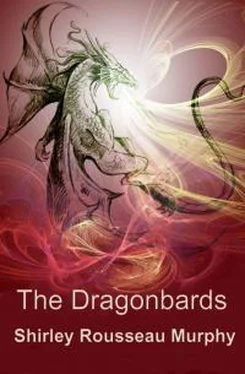


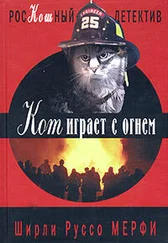

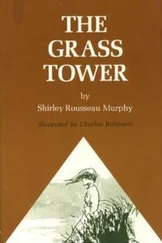


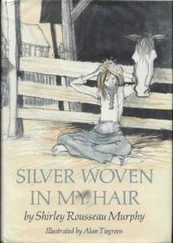
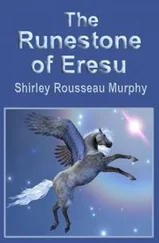
![Ширли Мерфи - The Shattered Stone [calibre]](/books/436059/shirli-merfi-the-shattered-stone-calibre-thumb.webp)
